
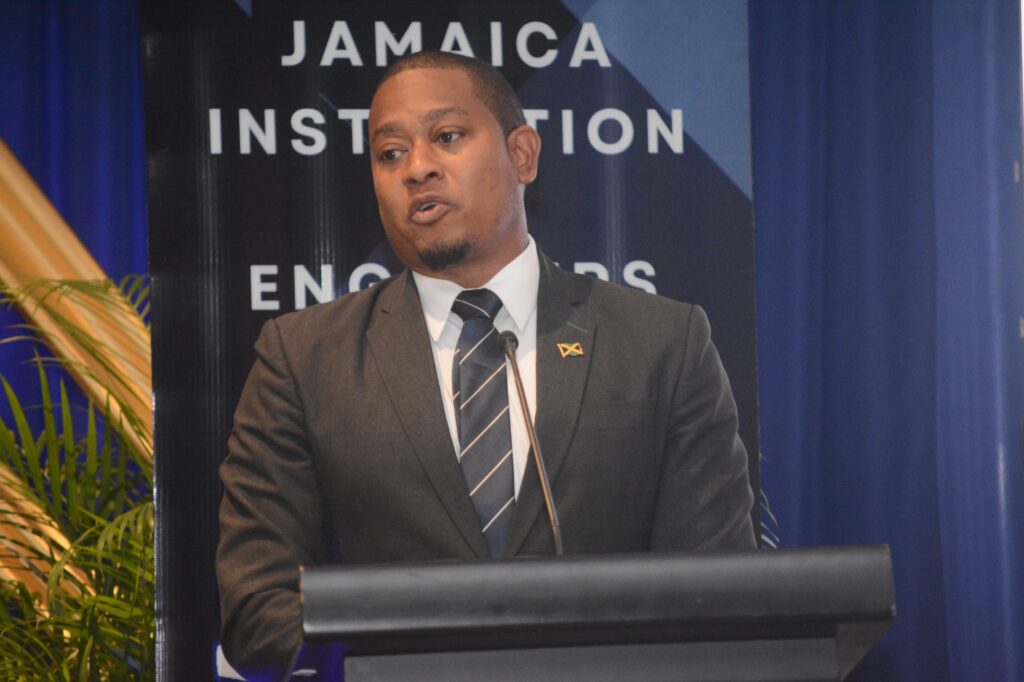
On the second day of Engineers’ Week 2024, on September 17, the spotlight was on infrastructural development and sustainability. A key discussion point was the pivotal role engineers must play in strengthening Jamaica’s agriculture, fisheries, and mining sectors in response to the growing threats posed by climate change.
The event at the Pegasus Hotel featured a keynote address by Floyd Green, minister of agriculture, fisheries, and mining, who underscored the urgent need for innovative infrastructure and engineering solutions to protect these critical industries. Citing Hurricane Beryl, on July 3, which destroyed greenhouses and severely impacted fisheries, Green emphasised that engineers must lead the way in designing systems capable of withstanding extreme weather events. The minister commended JIE on the Beryl Recovery project which included a tour of the affected parishes with industry experts to compile a strategy for recovery and resilience.
“If you have a problem and need a solution, find an engineer,” Green stated. He highlighted the alarming rise in temperatures, warning that by 2050, Jamaica could experience a 50% increase in hot days and nights. He also noted the severe impact this will have on water availability for irrigation, soil degradation, and an increase in pests and diseases, all of which pose significant risks to Jamaica’s agriculture sector.
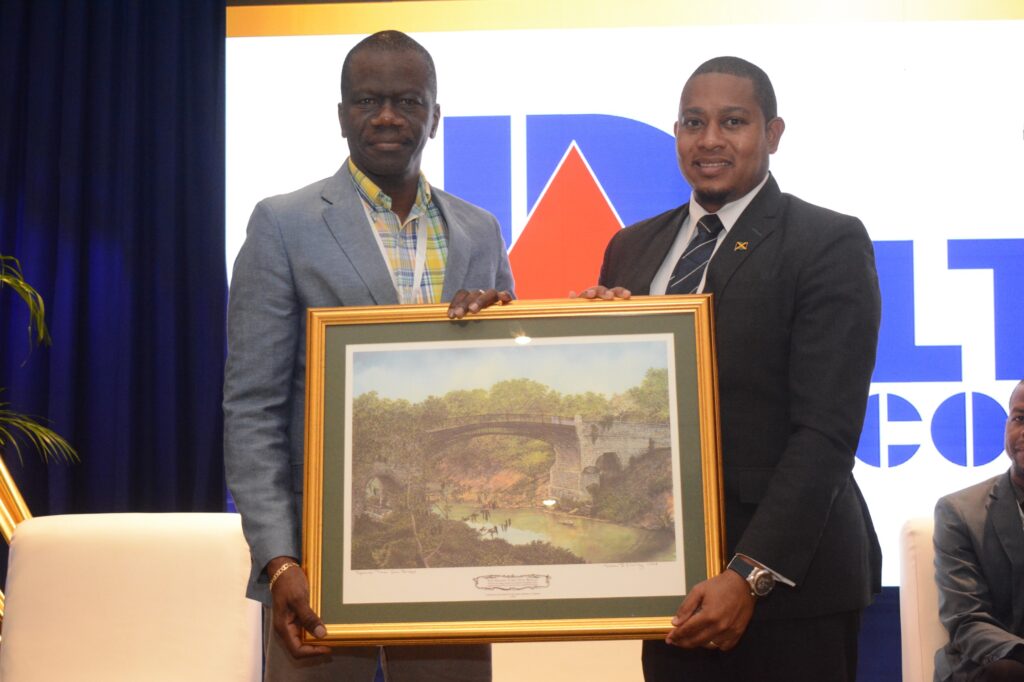
“We have to come up with climate-smart tools, designs, and resources that can create more efficient ways to get water to our farmers in these times,” he continued. “The solution lies in our engineers. Now is the time for all our engineers, especially our engineering associations, to help us transform from traditional primary production to processes that can optimize our efficiency and productivity.”
Green stressed the importance of climate-smart agriculture, focusing on durable greenhouse designs and renewable energy systems to reduce the impact of power disruptions and water shortages. He called on engineers to develop innovative solutions to ensure the sustainability of Jamaica’s food and resource industries in the face of global climate change.
Following Green’s address, a panel discussion titled “Building Technical Capacity for Successful Mega Projects in Jamaica” was held, moderated by Oneil Josephs, President of the Jamaica Institute of Engineers (JIE). The discussion delved into the engineering skills and innovations required to propel Jamaica’s development and navigate the complexities posed by climate change.
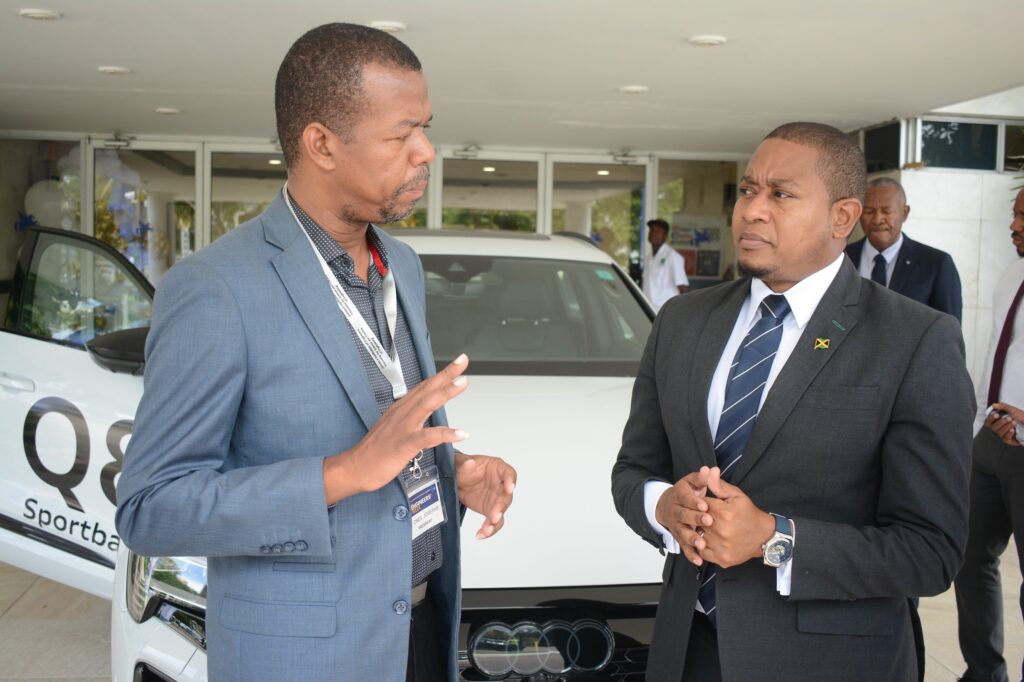
The panel featured:
- Omar Sweeney, Managing Director of the Jamaica Social Investment Fund (JSIF)
- Gary Walters, Past President of JIE
- Glaister Ricketts, Chairman of the Professional Engineering Registration Board (PERB)
- Richard Mullings, President of the Institute of Mining and Agriculture Jamaica (IMAJ)
Omar Sweeney emphasized the need for long-term, adaptable infrastructure to tackle evolving climate realities, echoing Green’s sentiments. “Jamaica is one of the most vulnerable countries in the world regarding climate change. We need to build resilience and offer technical solutions through professionals who can withstand these challenges,” Sweeney remarked.
Glaister Ricketts spoke about the importance of regulating engineering practices in Jamaica, stating, “It is unlawful to practice engineering without certification from the PERB. This ensures that our infrastructure is safe, from buildings to roads and bridges, and that these projects can withstand our changing climate.”
Richard Mullings emphasized the need for innovation in renewable energy, stating, “The real basis for delivering Mega Projects is knowledge and human resources. Are we maintaining and growing our technical capacity on the island? We must ensure that knowledge is retained within the system to effectively tackle future infrastructure projects.”
Michael Sanderson, Traffic Engineer at the National Works Agency (NWA), discussed the complexity of mega projects, particularly when including local technical engineers. “The size and scope of these projects, especially when working with local talent, can be challenging. For example, the qualification requirements—such as needing five or more years of experience—are tough, especially post-COVID, where opportunities like building power plants are few and far between,” Sanderson highlighted.
The panel concluded with a question-and-answer session, where participants discussed sustainable practices and advanced strategies to combat climate change. The conversation reinforced the indispensable role of engineers in ensuring that Jamaica’s infrastructure can withstand mounting environmental threats.
As Engineers’ Week continues, the spotlight remains on the vital contributions of the engineering community in building a resilient future for Jamaica.



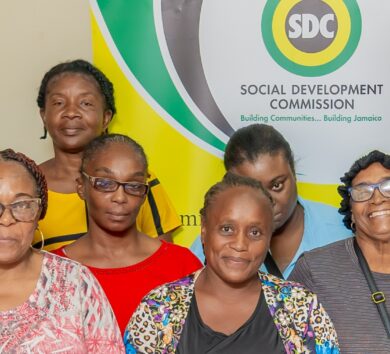


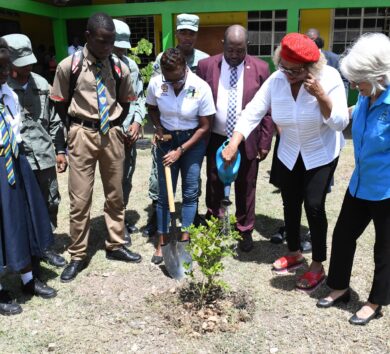
Comments